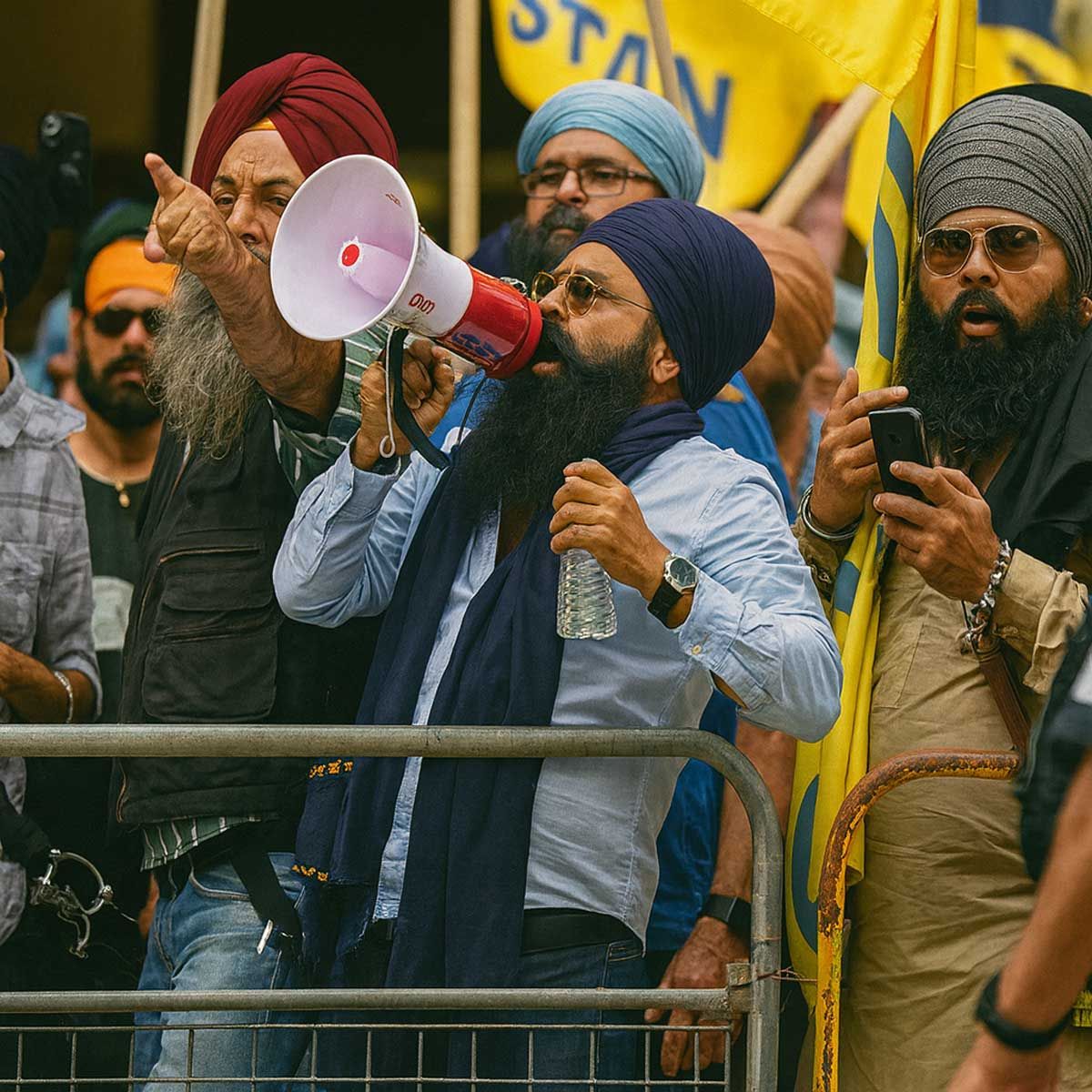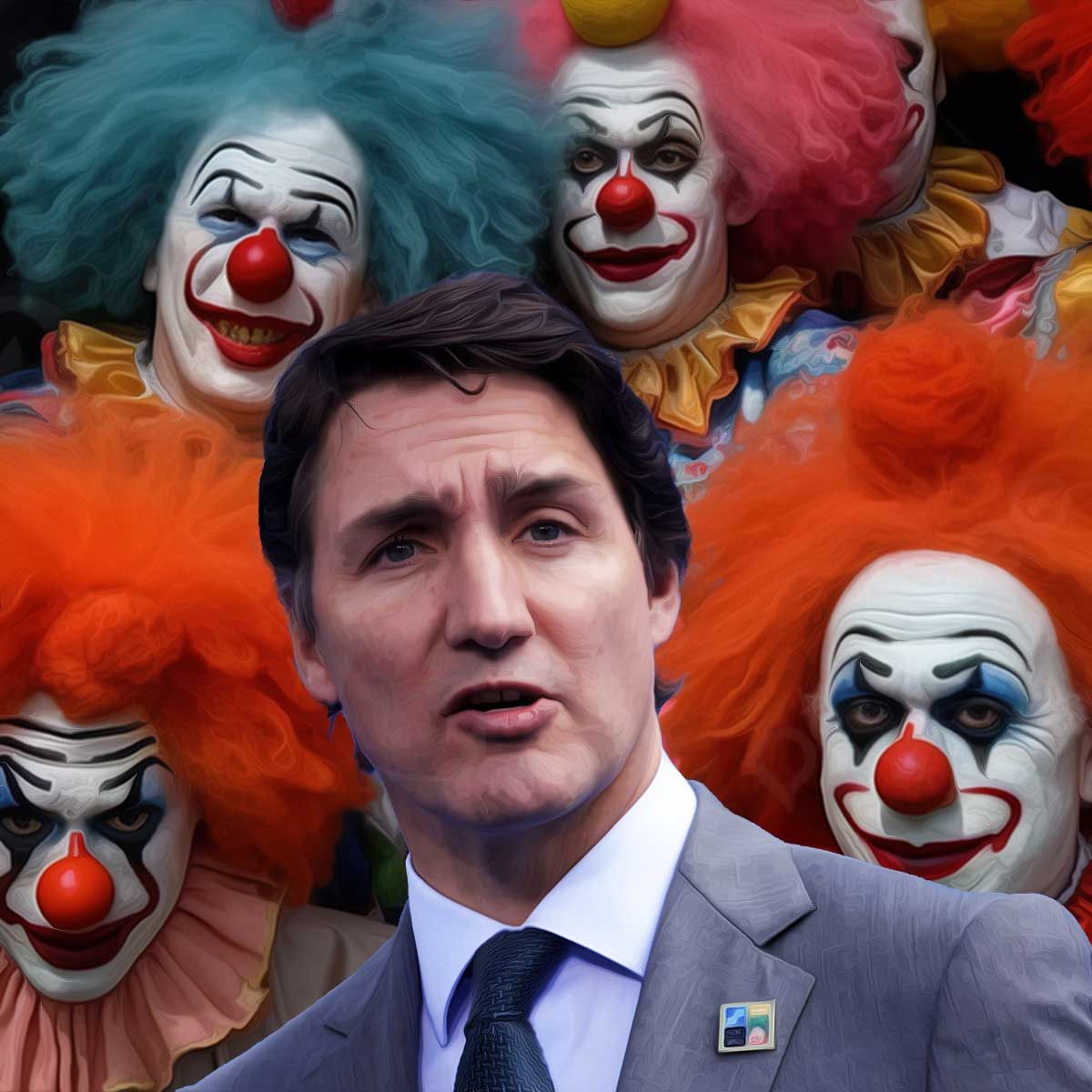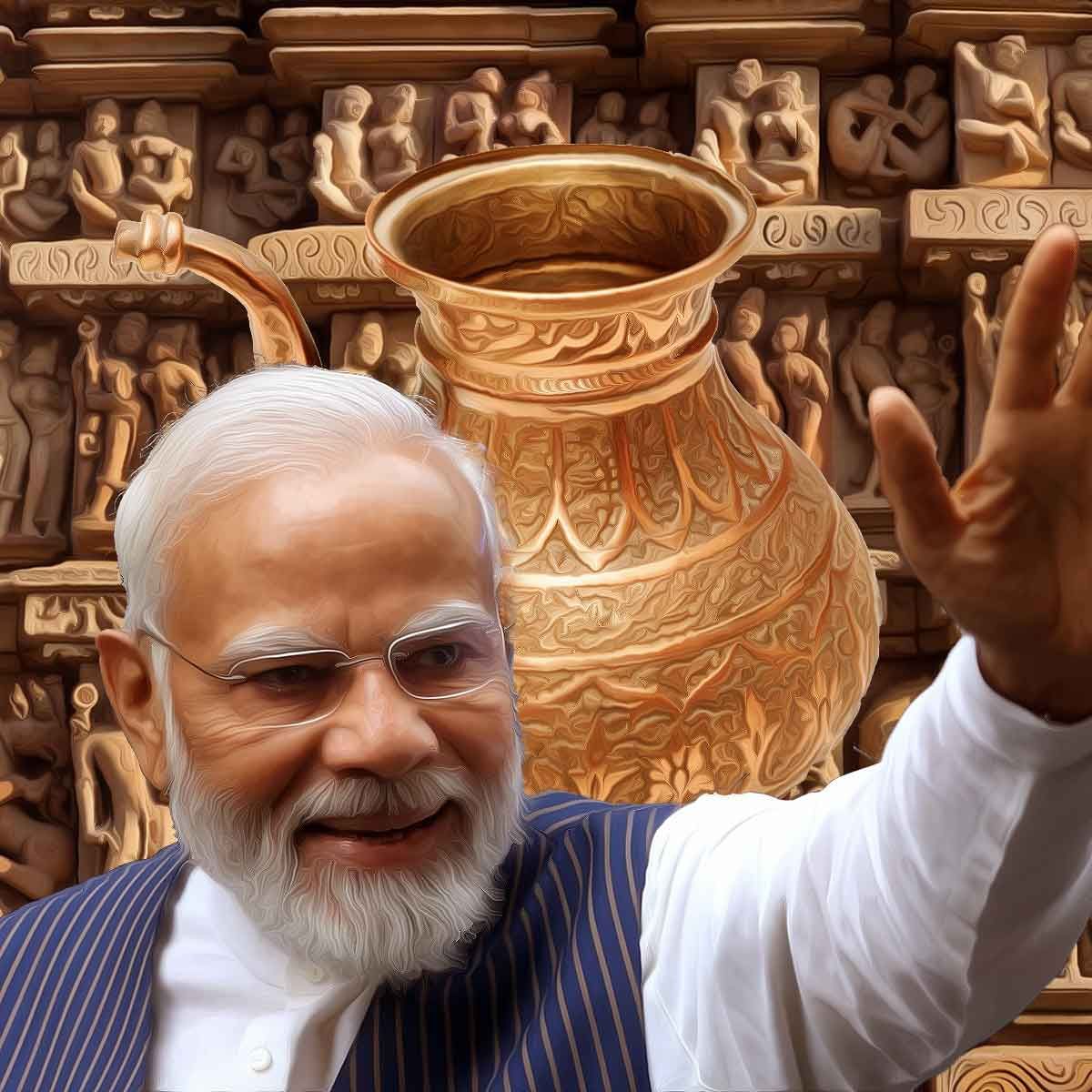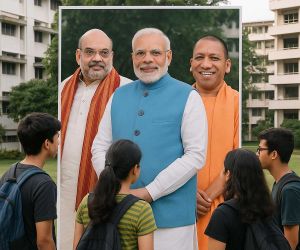MORE COVERAGE
Twitter Coverage
Satyaagrah
Written on
Satyaagrah
Written on
Satyaagrah
Written on
Satyaagrah
Written on
Satyaagrah
Written on
JOIN SATYAAGRAH SOCIAL MEDIA
Canada’s 2025 report exposes funding for Khalistani groups, recalls Trudeau’s Nijjar row and Hindu Sabha attack, as Modi and Carney try to revive strained India–Canada ties despite SFJ’s Surrey “embassy”

A recent disclosure by the Canadian government has brought into focus the scale of terror financing networks operating within the country. The Department of Finance Canada released a comprehensive document titled “The 2025 Assessment of Money Laundering and Terrorist Financing Risks in Canada”, which it describes as a detailed assessment of the “most pressing” threats related to both money laundering and terrorist financing.
This report does not merely address broad risks—it specifically identifies Khalistani terrorist organisations as active beneficiaries of funding streams that originate inside Canada itself.
|
Khalistani groups named alongside Hamas and Hezbollah
The report does not treat the Khalistani threat in isolation. It places organisations such as Babbar Khalsa International and the International Sikh Youth Federation under the larger umbrella of “Politically Motivated Violent Extremism” (PMVE). This category also includes globally notorious Islamist organisations like Hamas and Hezbollah. According to the government’s own explanation, PMVE is defined as ideologies that seek to “establish new political systems or new structures and norms within existing systems by use of violence.”
The report further explains how law enforcement and intelligence services in Canada have traced funding links back to the country: “Several terrorist entities listed under the Criminal Code in Canada that fall under the PMVE category, such as Hamas, Hezbollah, and the Khalistani violent extremist groups Babbar Khalsa International and the International Sikh Youth Federation, have been observed by law enforcement and intelligence agencies to receive financial support originating from Canada,” the document stated.
The assessment also clarifies that these violent groups may sometimes invoke religion to gain sympathy, but the real motive is political. “While PMVE may incorporate religious elements, actors are more focused on achieving political self-determination or representation, rather than promoting racial or ethnic supremacy,” it added.
|
Khalistani groups pushing for a separate state through violence
The Canadian government report also lays bare the intentions behind these organisations. It clearly points out that Khalistani networks in Canada endorse “violent means to establish an independent state within Punjab, India.” Importantly, the assessment reveals that their sources of funding are not limited to Canadian soil. Instead, contributions come from a range of countries, giving these groups a wider reach.
The report reflects on how the structure of these groups has changed over time: “These groups previously had an extensive fundraising network in Canada but now appear to consist of smaller pockets of individuals with allegiance to the cause but seemingly no particular affiliation to a specific group.” This indicates a shift from large-scale operations to smaller, scattered cells of supporters who continue to uphold the separatist cause.
|
Shared fundraising strategies: Khalistani, Hamas, and Hezbollah
The findings also shed light on the financial strategies that enable such groups to survive. The report reveals that Khalistani outfits raise money under the pretense of non-profit or charitable activities. It adds that Hamas and Hezbollah also employ the same model of deception. The tactics often involve using non-profit organisations (NPOs) and charitable fronts to collect donations, which are then redirected to sustain extremist operations.
Canadian authorities note that diaspora communities remain an important target for these groups. “Khalistani violent extremist groups have also been known to use networks to solicit donations from diaspora communities to raise and move funds, including through NPOs,” the assessment highlights. Yet, despite this active solicitation, the report makes it clear that the revenue generated through these so-called charitable activities forms only a small fraction of the overall operational budget of these terrorist entities.
Political backdrop: From Trudeau to Carney
The inclusion of Khalistani groups in such a high-level official assessment is not just about national security—it also carries diplomatic implications. Many analysts view this as a signal that Canada may now be attempting to repair its strained relations with India, which had deteriorated under former Prime Minister Justin Trudeau, often accused of being openly sympathetic to Khalistani elements.
The current Prime Minister, Mark Carney, though belonging to the same Liberal Party of Canada, has inherited this complicated legacy. Historically, the Liberal Party has maintained steady political support from the Sikh community in Canada, and some of its members, including Trudeau himself, have either tacitly or openly expressed solidarity with individuals aligned with the Khalistani ideology.
|
India–Canada Ties Strained Under Trudeau’s Tenure
Although Canada has long served as a safe space for Khalistani extremist organisations, the situation escalated sharply under the leadership of former Prime Minister Justin Trudeau. His open and baseless support for Khalistani groups led to a level of hostility between India and Canada not witnessed before.
The breaking point came in June 2023, when Trudeau, without providing evidence, accused India of involvement in the killing of Khalistani terrorist Hardeep Singh Nijjar on Canadian soil. This accusation caused a major diplomatic storm. By October 2024, India responded by recalling its High Commissioner Sanjay Verma from Ottawa after the Trudeau government declared him a “person of interest” in the Nijjar murder case—again, without substantiating proof. The situation worsened when Trudeau’s administration expelled six Indian diplomats from Canada. New Delhi retaliated by asking six senior Canadian diplomats to leave India in the same month.
The back-and-forth expulsions plunged ties into their worst crisis in decades. Bilateral trade negotiations were frozen, and both sides began re-evaluating key partnerships, casting a shadow over economic and political cooperation.
Khalistani Groups Empowered Under Trudeau’s Liberal–NDP Alliance
During this period, Khalistani extremist outfits not only survived but thrived. Trudeau’s Liberal Party was propped up in Parliament by the New Democratic Party (NDP), led by Jagmeet Singh, a leader often criticised for his pro-Khalistani leanings.
Under this alliance, the threat posed by Khalistani radicals became more visible on Canadian streets. In November 2024, tensions erupted outside the Hindu Sabha Temple in Brampton, where Khalistani activists gathered and raised anti-India slogans to mark the anniversary of the 1984 anti-Sikh riots in Punjab, which had followed the assassination of then-Prime Minister Indira Gandhi. When Hindu devotees pushed back against these actions, the situation turned violent, and Hindus were attacked by Khalistani mobs.
The incident was not isolated. The Hindu community across Canada increasingly reported facing threats and intimidation, particularly from groups led by figures such as Gurpatwant Singh Pannun, founder of Sikhs for Justice (SFJ). Despite these warnings, successive Canadian governments, including Trudeau’s, continued to turn a blind eye. Officials often used freedom of speech as a justification for inaction, allowing Khalistani propaganda to flourish unchecked.
India repeatedly voiced its frustration, warning that Canada’s permissive stance endangered India’s national security. Meanwhile, Canada’s immigration policy review—introduced to reduce the intake of new migrants—added another layer of complexity, as India remains one of the largest contributors of immigrants to Canada.
Amid this tense backdrop, there was finally a sign of diplomatic thaw. For the first time after taking office in March 2025, Canadian Prime Minister Mark Carney met Indian Prime Minister Narendra Modi on the sidelines of the G7 Summit in Kananaskis, Alberta, June 2025. The two leaders discussed ways to repair the fractured relationship, agreeing to send back their respective High Commissioners and explore opportunities for renewed cooperation.
A Glimmer of Hope for Restoring India–Canada Relations
By August 2025, a significant symbolic step was taken. Both nations appointed new High Commissioners as a gesture of reconciliation. India chose Dinesh K. Patnaik, a seasoned 1990-batch IFS officer and then Ambassador to Spain, to represent New Delhi in Ottawa. On the other side, veteran diplomat Christopher Cooter was named as Canada’s envoy to India. These appointments were publicly welcomed as a step toward normalization of ties.
However, optimism was quickly tempered by troubling developments. Just a few months after the Modi–Carney meeting, the Khalistani outfit Sikhs for Justice (SFJ), working alongside the Guru Nanak Sikh Gurdwara in Surrey, made headlines by inaugurating a so-called “Embassy of Khalistan”. The post carried signage for the fictional “Republic of Khalistan” and was set up within the gurdwara premises in August 2025.
The controversy deepened when reports surfaced that the building housing this so-called embassy had benefited from Canadian taxpayer money. Specifically, the British Columbia government had allocated $150,000 for the installation of an elevator in the very same structure. This revelation fueled concerns that taxpayer-funded infrastructure was indirectly enabling extremist symbolism.
The incident immediately reignited debates about Canada’s leniency toward Khalistani elements. Critics argued that despite diplomatic outreach, the government’s soft approach toward extremists continued to embolden separatist forces, complicating efforts to truly stabilize ties with India.
 Support Us
Support Us
Satyagraha was born from the heart of our land, with an undying aim to unveil the true essence of Bharat. It seeks to illuminate the hidden tales of our valiant freedom fighters and the rich chronicles that haven't yet sung their complete melody in the mainstream.
While platforms like NDTV and 'The Wire' effortlessly garner funds under the banner of safeguarding democracy, we at Satyagraha walk a different path. Our strength and resonance come from you. In this journey to weave a stronger Bharat, every little contribution amplifies our voice. Let's come together, contribute as you can, and champion the true spirit of our nation.
 |  |  |
| ICICI Bank of Satyaagrah | Razorpay Bank of Satyaagrah | PayPal Bank of Satyaagrah - For International Payments |
If all above doesn't work, then try the LINK below:
Please share the article on other platforms
DISCLAIMER: The author is solely responsible for the views expressed in this article. The author carries the responsibility for citing and/or licensing of images utilized within the text. The website also frequently uses non-commercial images for representational purposes only in line with the article. We are not responsible for the authenticity of such images. If some images have a copyright issue, we request the person/entity to contact us at This email address is being protected from spambots. You need JavaScript enabled to view it. and we will take the necessary actions to resolve the issue.
Related Articles
- "Separate we come, and separate we go, And this be it known, is all that we know": India deeply objects to politically motivated “farcical exercise” in name of a referendum carried out by Khalistanii elements in Canada, matter taken up with authorities
- Amidst Trudeau's allegations against India, Sri Lanka condemns Canada's double standards, highlighting Ottawa's controversial recognition of a Nazi veteran and its past accusations of 'Tamil Genocide', Canada's international image is under severe scrutiny
- Amid rising tensions, Sikhs and Hindus held an anti-Justin Trudeau protest at the Canadian Embassy in Delhi over attacks on Hindu temples by Khalistanis, Trudeau acknowledged Khalistani presence as India-Canada relations worsen after Nijjar's killing
- Justin Trudeau, who admitted past marijuana use, denies 'credible rumors' from ex-Indian diplomat Deepak Vohra of his plane carrying cocaine in India, Trudeau missed G20 dinner and stayed secluded for two days, possibly high on drugs
- "From Father to Son: A Troubling Legacy": In a sinister echo of the past, Canadian PM Trudeau openly endorses Khalistani elements against India, uncovering the dark history of Pierre Trudeau shielding notorious Kanishka bombing mastermind Talwinder Parmar
- "Turbulence tests the strength of community bonds": Hindu temple in Canada faces vandalism by Khalistan supporters, spotlighting escalating tensions after Khalistani activist Hardeep Singh Nijjar's death, What's next for the Hindu community abroad
- "आइस-पाईस": Canadian police admits it's a safe haven for Khalistanis, blaming the Lawrence Bishnoi gang for violence, Trudeau accuses India of Nijjar's murder, while WaPo targets Amit Shah, both nations expel diplomats in a growing political standoff
- "In the corridors of espionage, clarity is elusive": Sources shed light on Pakistan's ISI's alleged orchestration of terrorist Hardeep Nijjar's assassination in Canada, pointing to his resistance against supporting newly-arrived gangsters backed by ISI
- "अस्सी खालिस्तानी गुंडे": Khalistani goons attacked Hindu devotees at Brampton's Hindu Sabha Temple on Nov 3, 2024; Peel Police sided with the attackers, targeting Hindus in their own temple, Leaders Trudeau & Poilievre failed to name the Khalistanis
- "Face the future, say 'bring it on'": NIA lists 43 top criminals, including Canada-based with Khalistani ties, as tensions rise, Trudeau implicates India in Nijjar's Canada murder; India promptly refutes, calling the accusation 'absurd and motivated'
- "Unity, not division, is the foundation for progress and peace": Escalating Tensions in Canada: Indian diaspora holding the Tricolour, counters Khalistani separatists outside the consulate to protect their diplomats amidst Trudeau's political predicament
- "Home of the free, especially for the 'wanted'": From harboring Khalistanis like Nijjar to shielding the assassin of Sheikh Mujib, Nur Chowdhury, Canada's actions reveals its double standards and raise critical questions about the nation's true values
- "Nations stand tall when they stand firm": Amid soaring India-Canada tensions, India strikes a decisive blow against Khalistanis, seizing assets of Sikhs For Justice chief Gurpatwant Singh Pannun & Hardeep Singh Nijjar, reshaping geopolitical landscape
- 28-year-old Khalistani terrorist Arshdeep Dalla, an aide to Hardeep Singh Nijjar detained in Canada, linked to murders, extortion and terror modules in Punjab, his associates remain active as Indian extradition efforts face hurdles amid diplomatic tension
- "Canada National Sport - The Blame Game": Indian High Commissioner challenges Canada's 'conviction' of India in Nijjar case, emphasizing the importance of a thorough & conclusive investigation before drawing conclusions in international diplomatic affairs

























